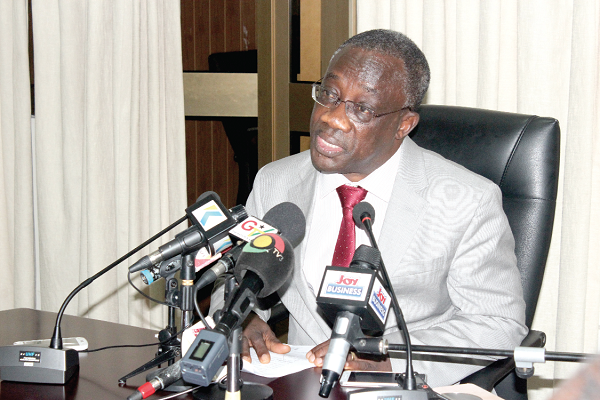GRA rotates 1,148 employees to boost revenue mobilization
The Ghana Revenue Authority (GRA) has announced the rotation of 1,418 of its employees to other areas of the organisation parts of moves to improve revenue collection in the country.
The authority has also made three top management changes in line with what it said was described as ongoing reforms by the government to improve performance inconsistent with the 2019 budget.
A statement by the Authority stated that, “there have been changes at the top management level of the institution. Also, about one thousand four hundred and eighteen (1,418) employees are being rotated to other areas of the organisation. Further changes will be made to retool GRA for the critical task of mobilizing revenue to finance improvements in the lives of our people.”
The statement further indicated that reorganisation has been necessitated by factors including the need for much stronger, worldclass structures and the realization of the Ghana Beyond Aid agenda.
“Given all of the above factors, It has become necessary to make changes to the Management and organisational structure to make it a much better performing institution. These changes are expected to bring several improvements in the institution. This includes bringing the best of private sector practices and combining that with public sector technical expertise to ensure that GRA is a better functioning institution. Additionally, these changes are expected to improve the overall level of professionalism and engender a customer-friendly mindset at GRA”, portions of the statement added.
The new leadership level appointment made are Ammishaddai Owusu-Amoah (Acting Commissioner for Domestic Tax Revenue Division , Ministry of Finance: Professional, Ethical, Efficient, Responsive-Transforming Ghana Beyond Aid), Colonel Kwadwo Damoah (Rtd), (Acting Commissioner, Customs Division) and Ms. Julie Essiam, (Acting Commissioner, Support Services Division).
Role of new team
In line with expectations, the new team will be expected to drive a number of critical transformational changes:
Modernising and digitising tax processes and systems;
- Introducing big data and block chain technologies to improve compliance;
- Expanding the tax base to encompass more effectively the informal sector and professional classes (currently there are over 6 million eligible tax paying individuals, however, only about 2.5 million have been registered and only about 1.2 million are active direct tax payers); and
- Developing a stronger culture of performance and accountability;
- Enhancing staff integrity and anticorruption measures;
- Increasing the quality of tax payer services;
- Respecting the client (taxpayer);
- Creating a fair and firm tax organisation that ensures equitable treatment
of every tax payer; - Tackling revenue leakages across both Domestic Tax and Customs;
- Ensuring that best practices are shared, to create a truly world-class
organisation.



